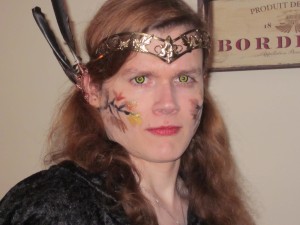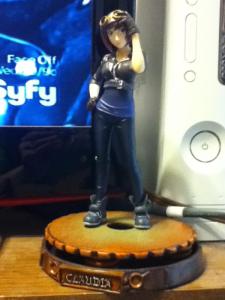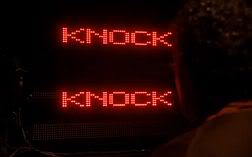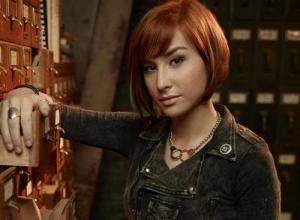Last week, fans in Spokane, Washington and around the world gathered to watch the presentation 73rd Annual Hugo Awards, one of the greatest and most notable honors bestowed for achievement in the genre of science fiction. It’s been a tense year. Two separate but linked reactionary movements, the Sad Puppies and the Rabid Puppies, made substantial gains in the nominations, successfully crowding out the sort of nominees that would generally be selected by the community at large. The Rabid Puppies enjoyed particular success due to a cult of personality centered on Theodore “Vox Day” Beale, who encouraged his followers to vote in lockstep. This practice was meant to counter the machinations of an imaginary cabal of liberal elitists who had been corrupting the soul of science fiction. In fact, it succeeded so dramatically because most fans not involved in the slates were already voting their conscience and nominating works they simply liked. Against this scattershot approach, lockstep voters were bound to succeed.
But the practices that allowed the Puppies of both houses to overwhelm the nominations could not allow them to carry the voting on the awards proper, particularly not after a record number of people bought supporting memberships in Sasquan, the 2015 Worldcon, and voted according to their consciences. For some, this meant ranking No Award – always an option, in ANY year – above nominees placed by the Puppy slates, whether because they disagreed with the reactionary politics or because they disliked slate voting on principle. For others, this meant reading all the works and judging them on merit. For myself, it meant rejecting some works that stank of particularly odious politics and personalities, or of obvious self-promotion (I rejected nearly anything published by Castalia House as Vox Day leveraging his political rhetoric to feather his own cap, for example), while attempting to review the rest fairly. I covered the nominees I considered worthy of consideration in The Dogcatcher Post, though due to limits on my free time and revised opinions on some of the nominees, I did not live up to my own standards as set out there.
In the end, No Award was given in five categories, doubling the number of No Awards given out in the entire history of the Hugos. The tension between the Puppies and the community at large did not abate. Victory was declared by some, defeat by others, and bad feelings continue to simmer all around. I have a few thoughts on how things shook out. The short version is that I’m not pleased, and worried about the short term, but optimistic for the long term. I’ll get into more detail, but before I do, I’d like to share my own final Hugo ballot, as registered on July 31st, noting the nominees in the order of my ranking (top to bottom) and the winners in bold.
Best Novel
- The Three-Body Problem by Cixin Liu; Ken Liu, translator
- Skin Game by Jim Butcher
- Ancillary Sword by Ann Leckie
- The Goblin Emperor by Katherine Addison
- The Dark Between The Stars by Kevin J. Anderson
Best Novella
- No Award
Best Novelette
- “Championship B’Tok” by Edward M. Lerner
- “The Triple Sun: A Golden Age Tale” by Rajnar Vajra
- “Ashes to Ashes, Dust to Dust, Earth to Alluvium” by Gray Rinehart
- “The Day The World Turned Upside Down” by Thomas Olde Heuvelt; Lia Belt, translator
- No Award
Best Short Story
- “Totaled” by Kary English
- “On A Spiritual Plain” by Lou Antonelli
- “A Single Samurai” by Steven Diamond
- No Award
Best Related Work
- No Award
Best Graphic Story
- Ms. Marvel Volume 1: No Normal, written by G. Willow Wilson, illustrated by Adrian Alphona and Jake Wyatt (Marvel Comics)
- Sex Criminals Volume 1: One Weird Trick, written by Matt Fraction, art by Chip Zdarsky (Image Comics)
- Rat Queens Volume 1: Sass and Sorcery, written by Kurtis J. Weibe, art by Roc Upchurch (Image Comics)
- Saga Volume 3, written by Brian K. Vaughan, illustrated by Fiona Staples (Image Comics)
- No Award
Best Dramatic Presentation, Long Form
- The Lego Movie, written by Phil Lord & Christopher Miller, story by Dan Hageman, Kevin Hageman, Phil Lord & Christopher Miller, directed by Phil Lord & Christopher Miller (Warner Bros. Pictures, Village Roadshow Pictures, RatPac-Dune Entertainment, LEGO System A/S, Vertigo Entertainment, Lin Pictures, Warner Bros. Animation (as Warner Animation Group))
- Captain America: The Winter Soldier, screenplay by Christopher Markus & Stephen McFeely, concept and story by Ed Brubaker, directed by Anthony Russo and Joe Russo (Marvel Entertainment, Perception, Sony Pictures Imageworks)
- Guardians of the Galaxy, written by James Gunn and Nicole Perlman, directed by James Gunn (Marvel Studios, Moving Picture Company)
- Edge of Tomorrow, screenplay by Christopher McQuarrie, Jez Butterworth, and John-Henry Butterworth, directed by Doug Liman (Village Roadshow, RatPac-Dune Entertainment, 3 Arts Entertainment; Viz Productions)
- Interstellar, screenplay by Jonathan Nolan and Christopher Nolan, directed by Christopher Nolan (Paramount Pictures, Warner Bros. Pictures, Legendary Pictures, Lynda Obst Productions, Syncopy)
Best Dramatic Presentation (Short Form)
- The Flash: “Pilot”, teleplay by Andrew Kreisberg & Geoff Johns, story by Greg Berlanti, Andrew Kreisberg & Geoff Johns, directed by David Nutter (The CW) (Berlanti Productions, DC Entertainment, Warner Bros. Television)
- Orphan Black: “By Means Which Have Never Yet Been Tried”, written by Graham Manson, directed by John Fawcett (Temple Street Productions, Space/BBC America)
- Game of Thrones: “The Mountain and the Viper”, written by David Benioff & D. B. Weiss, directed by Alex Graves (HBO Entertainment in association with Bighead, Littlehead; Television 360; Startling Television and Generator Productions)
- Doctor Who: “Listen”, written by Steven Moffat, directed by Douglas Mackinnon (BBC Television)
- Grimm: “Once We Were Gods”, written by Alan DiFiore, directed by Steven DePaul (NBC) (GK Productions, Hazy Mills Productions, Universal TV)
Best Professional Editor (Short Form)
- Jennifer Brozek
- Mike Resnick
- Bryan Thomas Schmidt
- No Award
Best Professional Editor (Long Form)
- Sheila Gilbert
- Anne Sowards
- Jim Minz
- Toni Weisskopf
- No Award
Best Professional Artist
- Julie Dillon
- Kirk DouPonce
- Nick Greenwood
- Alan Pollack
- No Award
Best Semiprozine
- Lightspeed Magazine, edited by John Joseph Adams, Stefan Rudnicki, Rich Horton, Wendy N. Wagner, and Christie Yant
- Strange Horizons, Niall Harrison, editor-in-chief
- Andromeda Spaceways In-Flight Magazine, Andromeda Spaceways Publishing Association Incorporated, 2014, editors David Kernot and Sue Bursztynski
- Beneath Ceaseless Skies, edited by Scott H. Andrews
- Abyss & Apex, Wendy Delmater, editor and publisher
Best Fanzine
- Journey Planet, edited by James Bacon, Christopher J Garcia, Colin Harris, Alissa McKersie, and Helen J. Montgomery
- No Award
Best Fancast
- Did not vote in this category, as I did not have time to properly listen to the nominees.
Best Fan Writer
- Laura J. Mixon
- No Award
Best Fan Artist
- Spring Schoenhuth
- Elizabeth Leggett
- Steve Stiles
- Brad Foster
- Ninni Aalto
The John W. Campbell Award*
- Kary English
- Wesley Chu
- No Award
*The John W. Campbell Award is, as has been repeatedly mentioned, not a Hugo, but it is awarded with them and selected by Hugo voters. The nominees must be writers who have enjoyed their first professional publication within the last two years.
So. What have I learned? Well.
Lesson One: The Puppies Nominated A Lot Of Garbage
All right: it would, perhaps, be fairer to say they nominated a lot of material I simply didn’t care for. Not for political reasons, mind. What I read was simply…not enjoyable. I ranked plenty of their nominees in many categories regardless, because I wasn’t really thinking in terms of anything beyond the pool of nominees I was given, to be quite honest. But the best I can say about the majority of the slates’ nominees is that they were competently written. I had an awful time even attempting to read through most of them, and while the reactionary politics do them no favors, at this point, I’m mostly angry with the Puppies for making me read that dreck.
The bright spots were the Best Dramatic Presentation categories. Even the Puppy nominees in those areas were generally pretty good, and I actually think both The Lego Movie and the pilot of The Flash were excellent and deserving of awards. I am not terribly broken up about Guardians of the Galaxy and Orphan Black winning, though I don’t feel the episode nominated was the most Hugo-worthy of the lot.
The low point was Best Novella. By a long shot.
Lesson Two: I Should Not Have Given Lou Antonelli The Benefit Of The Doubt
Between harassing a critic of his actions at his workplace, writing the Spokane police about David Gerrold, setting his fans on Carrie Cunin, and generally whining and complaining in the aftermath of Sasquan (surprisingly, if you go into a convention where everyone thinks you’re an utter prat, you should not expect sweetness and light from those around you), he’s shown himself to be an absolute ass who cannot be trusted to conduct himself in polite society. This post goes into more detail on his rather disturbing pattern of behavior. I actually thought his short story mildly interesting, if not the best I’ve ever read, but now that I see him revealed for the bully he is, I shan’t be ranking him again. If he’s nominated in the future, in any category, I will rank him below no reward. Someone who goes around trying to call hell on other members of the SF community does not deserve one of its highest honors.
Lesson Three: I’m Mostly Happy With The Results…
I’m glad that Best Novel went to a worthy author, and that it was a historic award to boot. I’m absolutely stoked that Lightspeed Magazine took Best Semiprozine (and “I’d like to thank the patriarchy” was one of the best lines of the night). I can’t tell you how happy I am that Ms. Marvel‘s first volume took Best Graphic Story, in part because it’s a genuinely good book that I thoroughly enjoyed, and in part because I hope John C. Wright’s face looked like he’d just eaten a whole raw lemon. If anyone happened to snap a photo of him in that moment, I’d pay good money for it.
I love Orphan Black, I love its writers, I love its cast, I especially love Tatiana Maslany, and the show deserves a Hugo, even if that specific episode wasn’t my favorite. Guardians of the Galaxy was, while not my first choice, a great, fun film, and the fact that it won despite being a slate nominee shows that the voters were willing to set their feelings aside to reward quality work. At least in one case. More on that in a second.
The No Award to Best Novella was well deserved. I think the No Award to Best Related Work was, too. The No Award to Best Short Story was, perhaps, slightly less so, though I can see how many voters thought the quality of the nominees sub-par compared to the stories pushed off the ballot by the slates.
Lesson Four: …Except When I Wasn’t Happy At All
In retrospect, I think Best Novelette should have been No Awarded. I hate to say it, because Thomas Heuvelt is clearly so happy about his victory, but I didn’t think The Day The World Turned Upside Down was very good at all. As I look back on the nominees, none of them felt like the best work of the year. There were differences in their relative quality, but I wasn’t thrilled with the choices I was given. That’s my personal opinion, of course, and hindsight is 20/20, but in future years I think I’ll put a lot more thought into whether or not nominees deserved to be on the ballot in the first place.
But the hardest blows of the evening were, to me, the Best Editor awards. I don’t think either of them deserved to be No Awarded, and here, I think, the Puppies have a point about voters voting for political reasons. That said, there were a lot of new voters this year, and Best Editor is a tough category for the layperson at the best of times. It is somewhat easier with short form editors, because they are not only responsible for helping an author improve a story, but (perhaps more importantly) they are curators, assembling material into anthologies and magazines. A short form editor can be judged by their good taste.
In the long form, an editor’s work is invisible to the reader (at least if they’ve done a good job), and they may or may not have been responsible for selecting material for their publisher. The nature, level and impact of their input can vary widely. I make a point of reading authors’ acknowledgements, so I knew that Sheila Gilbert (my first choice) had edited Seanan McGuire’s work, and Seanan had expressed her deep gratitude…but not everyone bothers to read such things. I’ve seen a couple proposals to remedy this, and a couple calls to remove the Best Editor (Long Form) category altogether, but I haven’t made up my mind on the issue yet.
Regardless, though both categories were filled with Puppy nominees, they were worthy nominees who do excellent work. It is not just that no award was given in either category. It reflects poorly on the community. I do not celebrate these results.
Lesson Five: No One Likes Sore Winners Or Sore Losers
I think the cheering and applause for No Award was out of line.
I was shocked the first time I heard it, and mortified as it happened again, and again. I can understand the instinct to applaud each announcement on general principle. I can understand getting caught up in the moment, the feeling of victory as the voters rejected the Puppies’ agendas again and again, and breaking out into cheers and applause. I can’t honestly say that I would have resisted those impulses entirely. But it was obnoxious. It was rude. There were nominees sitting in the audience who, rightly or wrongly, believed in their work, hoped for a win. They did not need anyone to rub their losses in their face.
And, more to the point, I do not see a No Award as a victory. I see it as the least objectionable outcome under the circumstances (with the exception of Best Editor, as noted above). The appropriate response feels like a somber silence.
Fortunately, the Puppies have conducted themselves abominably in the wake of the Hugos. Mike Glyer at File770 has been rounding up a lot of it. Let me address a few arguments.
- The Asterisks were a slap in the face! So, riffing off remarks that this year’s Hugo winners would have asterisks next to their names due to the extraordinary circumstances surrounding the nominations and voting, ‘official’ Worldcon asterisks were made out of wood and sold at the con for charity. In addition, each Hugo nominee got their own wooden asterisk. Was this in poor taste? Perhaps. But David Gerrold made some beautiful remarks at the ceremony that turned them into more of a tongue-in-cheek symbol of pride at being part of SF history, and fandom has a long and distinguished history of taking the piss out of things, lightening the mood when tension is hanging in the air. This was just another part of that tradition.
- How dare Robert Silverberg joke about Hare Krishnas when ‘offensive’ jokes made by the ‘wrong’ people are roundly scorned! Robert Silverberg spoke near the beginning of the ceremony about a similarly tense Worldcon back in Berkeley, and fondly recalled stepping outside now and then to seek peace by listening to the soothing Hare Krishna chant. He then produced a tambourine and led the audience in said chant, urging serenity and patience for the night ahead. It was an amusing and oddly reassuring experience. Was he insulting the Hare Krishnas? Maybe. I’m not a Hare Krishna, so I suppose I wouldn’t know. But then, I don’t think any of the people crying foul (particularly the Puppies) are among that distinguished number, either.
- George R.R. Martin rented a mansion for an exclusive party and left out Hugo nominees and gave out the ‘real’ awards and conspiracy robble robble robble. George R.R. Martin is entirely within his rights to throw any kind of party he likes. He frequently threw parties for those who were nominated but failed to win Hugos back in the old days; these parties, as he himself has explained, eventually turned into a formal reception that he found rather stuffy. In the wake of the Puppies’ giant stinking mess, particularly in light of the people pushed off the ballots by slate shenanigans, he decided to resurrect the losers’ party, and to give out tongue-in-cheek awards named for Alfred Bester (the Alfies) and made quite literally out of hood ornaments of various rocket-like shapes and sizes. It was a way of honoring friends and colleagues he felt had been shafted. It’s true that some Hugo nominees were not invited to the party, that he had a list of ‘assholes’ he left out, but then, at least one of said assholes has demonstrated repeatedly that he is highly deserving of the label, and again, private party. So I can’t fault George there. It wasn’t a conspiracy. They weren’t the ‘real’ Hugos as awarded by the Secret Liberal Cabal of Social Justice. It was George R.R. Martin demonstrating the sort of kindness and good humor that lures you into a false sense of security before he brutally kills off characters you truly, desperately liked, George R.R. Martin, you unforgivable wretch.
- No Award invalidated my vote! I’m launching a class action suit! I don’t…but…elections don’t work that way…
- THIS WAS A SECRET VICTORY FOR THE PUPPIES! WE GOT THEM TO BURN IT ALL DOWN! Wiser people than I have already compared the Hugos to the climactic scene of How The Grinch Stole Christmas, where Christmas comes without presents, et cetera and so forth. Yeah. It’s a lot more like that. A couple significant bumps in the road, but quite a lot like that.
Lesson Six: It’s Always Darkest Before The Dawn
The Puppies, both Sad and Rabid, have already promised to pull their crap again next year. They will probably succeed, to be honest. There may be more categories going to No Award. More unworthy contenders. More garbage I’ll feel honor-bound to read. The only effective way to counter them would be an anti-Puppy slate nominated in lockstep. I refuse to do that. I won’t take part. I will nominate stories I enjoyed and editors my favorite authors have praised. I will not vote in lockstep with anybody. Because lockstep slate voting is a repugnant concept to me. It ignores everything that makes the fan community great. It replaces word of mouth and the cultural zeitgeist with an organized political movement.
I will not abuse the spirit of the Hugos on a misguided quest to ‘save’ them. Even if it means I have to vote No Award in every single category next year.
But I’m not going away. I’m grabbing a supporting membership for next year’s Worldcon. I’ll be participating in nominations and in final voting (and in site selection, as I’d quite like a New Orleans Worldcon in 2018). I’m just one person with one vote, but I can be part of the effort to resist the Puppies.
Here’s the thing: I agree with many of the Puppies’ most superficial stated goals. I want science fiction to be fun again. I am tired of dystopias, tired of endings, tired of the apocalypse. I want hope for the future. I want inspiration. I want fun. I want the fandom of today to look to science fiction and see ideas they can incorporate into the solutions of tomorrow. I want us to dream of turning our world into a paradise and sailing outward among the stars. We have never needed the hope and promise of science fiction more than we do now. It is as Isaac Asimov said:
Individual science fiction stories may seem as trivial as ever to the blinder critics and philosophers of today — but the core of science fiction, its essence, the concept around which it revolves, has become crucial to our salvation if we are to be saved at all.
The problem, of course, is that few if any of the Puppies’ nominees offered that promise – and that my idea of the utopia we can and should build here on Earth is a place where everyone is allowed room to grow and change as they must, and pursue what happiness they can find in this life, provided they do no harm to others. I don’t think the masterminds behind the Puppies of either camp want a world where I would belong. And so they fight to drag SF back into their idea of a golden age, while the rest of us fight to expand its boundaries into a new one of limitless promise, endless challenges and infinite opportunities. The culture war goes on, and this is just a minor skirmish.
Still. There is hope everywhere, and the Hugos are no exception. Two proposals to change the nomination system were ratified at this year’s Worldcon. If they are ratified again next year, they will be implemented. One, E Pluribus Hugo, creates a multi-round system which should diminish the impact of lockstep nominations. The other, 4 and 6 (sorry I don’t have a link), creates a system where each voter selects four nominees, but six finalists are selected; this could still be exploited by some mildly clever maneuvering, but combined with EPH, it might be quite effective. Though Vox Day in particular insists he has enough support to overcome any effort to block his slates, preliminary data crunching on EPH alone indicates that it would limit the damage lockstep slate voters could do. Data on EPH combined with 4 and 6 is not yet available.
So, in the short term, none of us are going anywhere. We’ll all be watching the entire Hugo process, not to mention next year’s Business Meeting, with great interest. We’re in for another tense and difficult year full of rhetoric. Many suggestions have been made to the Puppies of both camps as to how they might make more reasonable arguments and avoid alienating Hugo voters; I expect them to take none of those suggestions. The new leaders of the Sad Puppy crew seem even more reactionary than their predecessors. This will be unpleasant.
But science fiction is all about the future just beyond our grasp. The best of it is about finding hope there. And I think there’s reason to hope here. The reactionary elements of our community may gain some traction. But, to quote Angels In America, the world only spins forward.
And to paraphrase Firefly, no power in the verse can stop us.












